NCTE Professional Dyads and Culturally Relevant Teaching (PDCRT)
The Professional Dyads and Culturally Relevant Teaching (PDCRT) program supports early childhood educators of color and educators who teach elementary children of color, children who are emerging bi/multilinguals, and children from low-income households in studying about culturally relevant pedagogies and generating, implementing, documenting, evaluating, assessing, and disseminating classroom practices and process reflections from work done in preK to fifth-grade classrooms. The program was created by the Anti-Racist Committee of NCTE’s Early Childhood Education Assembly (ECEA).
Meet the 2025–2027 Dyads
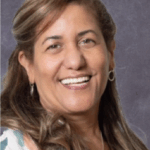 Yandra Mordan is a dedicated early childhood educator with over twenty-seven years at Bloomingdale Family Program, which follows the HighScope curriculum. She earned a master of arts from Teachers College, Columbia University, with a concentration in early childhood education and special education (dual certification and extension). A proud Dominican, she promotes culturally responsive teaching that fosters independence, initiative, and critical thinking in a loving and active learning environment.
Yandra Mordan is a dedicated early childhood educator with over twenty-seven years at Bloomingdale Family Program, which follows the HighScope curriculum. She earned a master of arts from Teachers College, Columbia University, with a concentration in early childhood education and special education (dual certification and extension). A proud Dominican, she promotes culturally responsive teaching that fosters independence, initiative, and critical thinking in a loving and active learning environment.
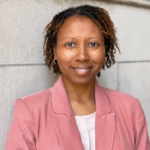
Dr. Tara Kirton is a lecturer in the early childhood program at Hunter College, The City University of New York (CUNY). She holds an EdD in curriculum and teaching from Teachers College, Columbia University. Dr. Kirton is a mom and a former preschool teacher, special education itinerant teacher, and curriculum writer. She centers historical literacy and culturally responsive pedagogy in her work with preservice teachers as they prepare to teach culturally and linguistically diverse children.

Alfonsina Paez is a grade 3 bilingual teacher at Samara Community School in the Bronx, where she teaches in a dual language, project-based learning program. An immigrant from the Dominican Republic and the daughter of two teachers, she has a lifelong passion for education. Paez spent eight years as a paraprofessional in District 75, supporting students with special needs. She is committed to inclusive, empowering classrooms where students build confidence, develop agency, and advocate for themselves and their communities.

Katherine Cordova is a grade 3 bilingual special education teacher at Samara Community School in the Bronx. She has five years of teaching experience and over fifteen years in education. A former bilingual student, she values inclusive, multilingual learning and sees project-based learning (PBL) as a powerful way to support all students. Certified in special and general education through grade 6, Cordova empowers educators to structure PBL to effectively support learners with varied learning needs.
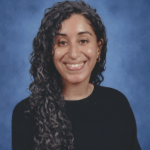
Rubi Brioso, a grade 3 bilingual teacher in the Bronx and adjunct at Lehman College, brings ten years of experience to her work. Growing up in NYC, she is deeply committed to creating joyful, identity-affirming spaces where students feel seen and empowered. She centers student voice through project-based learning and real-world inquiry. Inspired by Cultivating Genius, Brioso designs a curriculum rooted in joy, identity, and criticality. She has presented at NCTE to share her passion for integrating culture and community into learning.
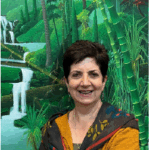
Cecilia M. Espinosa, PhD, is a professor of early childhood/childhood at Lehman College-CUNY. Her research focuses on children’s writing, translanguaging, and children’s literature that affirms and nurtures multiple identities. Espinosa served as chair of the NCTE Charlotte Huck Award for Outstanding Fiction for Children. Her work is rooted in the Institute on Descriptive Inquiry, and the NYCWP, CUNY NYSIEB, CUNY IIE Projects. Espinosa coauthored the book Rooted in Strength: Using Translanguaging to Grow Multilingual Readers and Writers (2021).

Kaya Richardson is a recent December graduate with a bachelor’s degree in elementary education and a minor in psychology. Originally from Illinois, she attended East Carolina University and decided to stay in the area to begin her teaching career. Richardson is passionate about creating a supportive and engaging learning environment where all students can thrive.
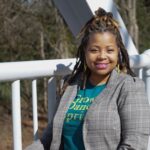
Dr. Julia A. Lynch, a Black-poet-scholar, is an assistant professor of literacy and language at the University of North Carolina Wilmington. She operates primarily from a BlackMothering epistemology to engage in education that promotes equity and social justice in rural education, teaching, and learning. Using culturally responsive pedagogy as a foundation, her research centers on rural education context within the post-colonial south, culturally sustaining pedagogies, and arts-based literacy practices that support culturally and linguistically diverse students.

Maria Rodriguez Maldonado is a Title I public school teacher in Savannah, Georgia. She recently completed her master’s degree in elementary education. She is originally from Mexico and is fluent in Spanish and English. This is her fifth year teaching diverse multilingual students, which is her passion. She is happily married with two beautiful girls, an upcoming sixth grader and a sophomore in high school. She loves animals and has three dogs and three cats that are part of the family. She is excited about this project and can’t wait to learn so much from this experience.

Sally Brown is a professor of literacy education at Georgia Southern University. She teaches graduate students in the MEd and EdS reading programs. Previously, she taught in South Carolina public elementary schools. Her research focuses on emergent bilingual literacies using a culturally relevant/responsive framework. Brown’s research has been published in Reading & Writing Quarterly, Language Arts, and The Reading Teacher. She is coauthor of Multimodal Funds of Knowledge: Countering Deficit Narratives of Diverse Families (2025).

Carissa Treviño is a general education elementary school teacher in San Antonio, Texas. She attended the University of Texas at San Antonio where she received her degree in equity and education EC-6 with a specialization in ESL. Treviño is passionate about empowering multilingual learners and fostering inclusive classroom environments that reflect and celebrate diverse identities and lived experiences. She believes every child brings unique strengths, cultures, and stories that enrich the classroom community. As an educator she strives to create a safe, inclusive space where students see themselves reflected in their learning and feel empowered to use their voice. Through culturally relevant teaching her aim is to foster critical thinking, empathy, and a lifelong love of learning while equipping students not just to succeed academically, but to thrive as confident, compassionate individuals.

Dr. Yvette M. Regalado (ella/she/her) is an assistant professor of literacy instruction. As an Indigenous Latina practitioner-scholar-activist, Dr. Regalado is committed to advancing cultural and language pedagogy in literacy instruction through restorative literacies, counterstorytelling, and Indigenous pedagogy. Her research works to disrupt and dismantle educational deficit narratives surrounding BIPOC students in K–16 classrooms. She is a Cultivating New Voices Among Scholars of Color Fellow and won third place in the 2025 AAHHE Outstanding Dissertation Competition.

Jing Zhang holds a master of education in language and literacy and is currently pursuing a PhD in the same field at the University of South Carolina. She has over twelve years of experience in bilingual education—four years in China and eight in the United States. She is certified by the state of South Carolina in multiple areas, including Literacy Specialist, Literacy Coach, Literacy Teacher, ESOL Teacher, and World Language Chinese. Additionally, she holds the Read to Succeed endorsement. Zhang is deeply committed to fostering the academic growth of young learners and finds continuous inspiration in the reciprocal learning that occurs in the classroom.

Yang Wang is a professor in language and literacy in the Department of Teacher Education at the University of South Carolina. She earned her PhD in literacy and MEd in TESOL from the University of Missouri. She is the co-director at the Center of Bilingualism Matters @USC and president of Literacies and Languages for All, NCTE. Her research focuses on sociopsycholinguistic perspective of the reading process, eye movement miscue analysis with multilingual learners, English language teaching and learning, bilingualism, and biliteracies.
Meet the 2025–2027 Co-Directors
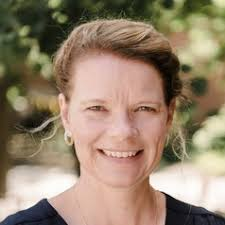
Kindel Turner Nash is the Spangler Distinguished Professor of Early Child Literacy in the Reich College of Education’s Department of Child Development, Literacy, and Special Education at Appalachian State University. She received her PhD from the University of South Carolina in 2012. Turner Nash’s research, teaching, and service centers on culturally sustaining and humanizing early literacy practices, highly effective teachers, and transformative approaches to teacher preparation. A former classroom teacher and literacy specialist in schools that served historically ignored children, Turner Nash has always grounded her work in humanizing and generative collaborations with classroom teachers and school leaders. She was a member of the inaugural cohort of the National Council of Teachers of English’s Professional Dyads and Culturally Relevant Teaching (PDCRT) (2012–2015), which has helped foster lasting, meaningful, thriving research-practice partnerships that strive to create a new and generative world, even as existing structures are dismantled. Her substantive, classroom-based research has resulted in the co-development of a complex reading model, the Cultural Sustenance View of Reading, and the coauthorship of three books and thirty-five refereed publications. The book Culturally Sustaining Practices for Pre-K–3 Classrooms: The Children Come Full, coauthored with classroom teachers, was recently recognized as an Edward Fry Book Award finalist by the Literacy Research Association (2023). Turner Nash has received hundreds of thousands of dollars in grants from numerous sources, including the US Department of Education and the Spencer Foundation. She has delivered keynote addresses for the University of Virginia, the National Council of Teachers of English, Sarah Lawrence College, Meredith College, and California State University. Turner Nash was awarded the Service Award for Reading Education by the Local Investment Commission of Kansas City, Missouri, for her work in moving campus-based literacy coursework into community settings (2015). In 2022, Turner Nash was named the Early Literacy Teacher Educator of the Year by the National Council of Teachers of English. Turner Nash is truly honored to continue to support the work of the Professional Dyads and Culturally Relevant Teaching as the 2025–2027 co-director, with collaborator Roderick Peele.
 Roderick Peele is a husband and father of two children. He has been an elementary educator for the past fourteen years and currently is an elementary educator at Northern Parkway Elementary School in Uniondale, New York. He currently holds a New York State Professional Teacher Certificate for Students with Disabilities (Grades 1–6) and Childhood Education (Grades 1–6), and he holds a New York State School Building Leader, Initial Certificate.
Roderick Peele is a husband and father of two children. He has been an elementary educator for the past fourteen years and currently is an elementary educator at Northern Parkway Elementary School in Uniondale, New York. He currently holds a New York State Professional Teacher Certificate for Students with Disabilities (Grades 1–6) and Childhood Education (Grades 1–6), and he holds a New York State School Building Leader, Initial Certificate.
He is a coauthor of Culturally Sustaining Language and Literacy Practices for Pre-K–3 Classrooms, released in 2022. He was recognized as Social Justice Educator of the Year 2022 by the National Council of Teachers of English’s Early Childhood Education Assembly and, most recently, is serving as a member of the executive board for the Early Childhood Education Assembly.
Peele’s daily life is rooted in values, interests, and principles (VIPs) from his ethnic background and lived experiences. These VIPs are mirrored with what is known in the educational academic world as culturally relevant, culturally sustaining, and culturally responsive pedagogy and practices. His daily classroom instructional practices and lessons for students center on what Dr. Gholdy Muhammad’s HILL model identifies as identity, skills, intellect, criticality, and joy.
Peele is a critical disruptor within the field of education for a better tomorrow.
